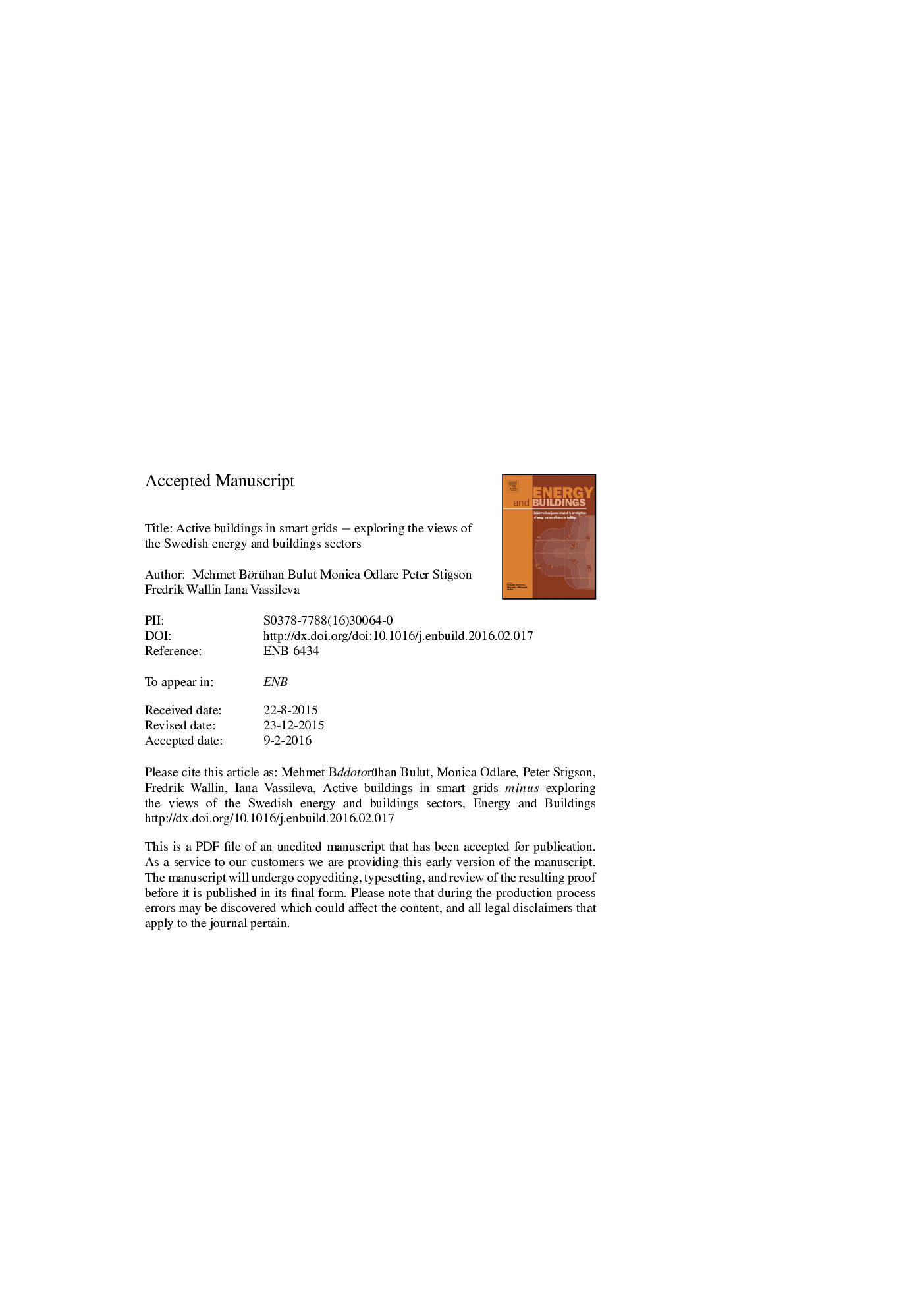| Article ID | Journal | Published Year | Pages | File Type |
|---|---|---|---|---|
| 6730377 | Energy and Buildings | 2016 | 37 Pages |
Abstract
The development of smart grids is expected to shift the role of buildings in power networks from passive consumers to active players that trade on power markets in real-time and participate in the operation of networks. Although there are several studies that report on consumer views on buildings with smart grid features, there is a gap in the literature about the views of the energy and buildings sectors, two important sectors for the development. This study fills this gap by presenting the views of key stakeholders from the Swedish energy and buildings sectors on the active building concept with the help of interviews and a web survey. The findings indicate that the active building concept is associated more with energy use flexibility than self-generation of electricity. The barriers to development were identified to be primarily financial due to the combination of the current low electricity prices and the high costs of technologies. Business models that reduce the financial burdens and risks related to investments can contribute to the development of smart grid technologies in buildings, which, according to the majority of respondents from the energy and buildings sectors, are to be financed by housing companies and building owners.
Related Topics
Physical Sciences and Engineering
Energy
Renewable Energy, Sustainability and the Environment
Authors
Mehmet Börühan Bulut, Monica Odlare, Peter Stigson, Fredrik Wallin, Iana Vassileva,
